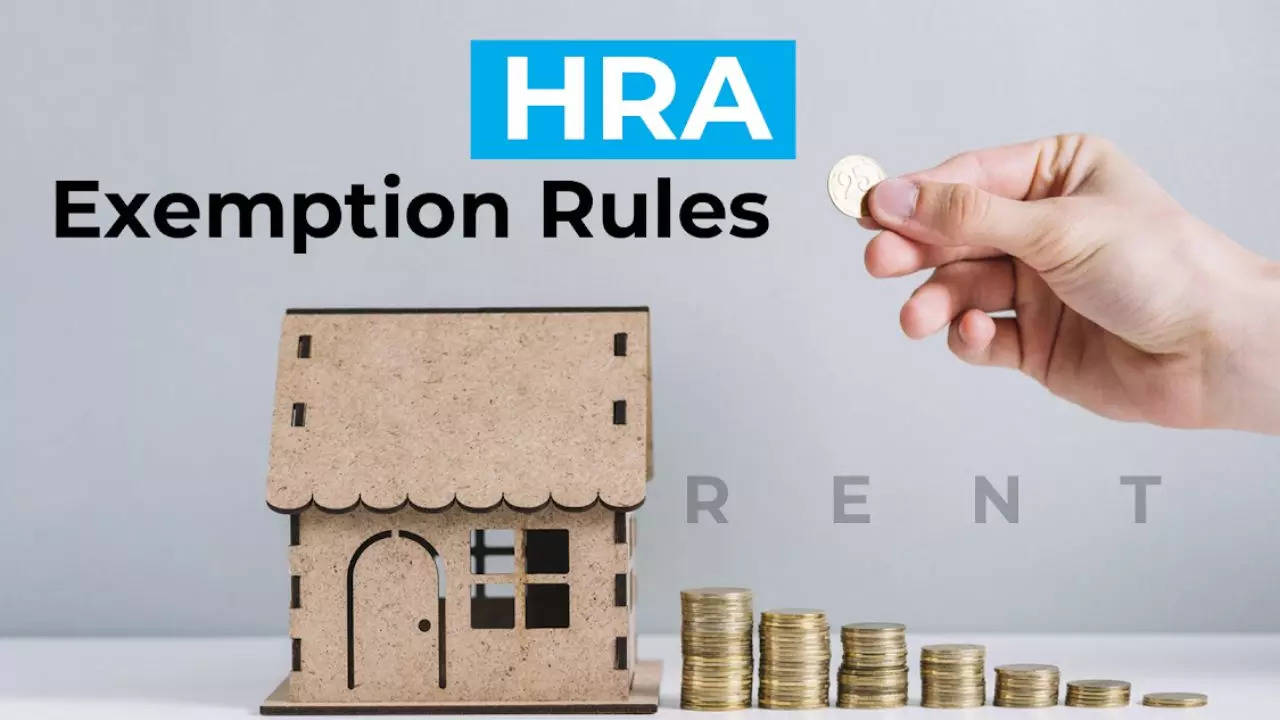Understanding HRA exemption rules & benefits: Saving tax on rent allowance – know eligibility, calculation, documents required & more | Business

[ad_1]
The exemption on HRA reduces the taxable portion of an employee’s income, thus offering a means to save on taxes.However, it’s essential to note that if an employee resides in their own property or doesn’t pay rent, the HRA received becomes fully taxable.
Every year, employees must choose between the old and new tax regimes, unless they have business income. Changes were made to the income tax laws for the new regime starting April 1, 2023. Apart from changes in tax slabs, the basic exemption limit was raised to Rs 3 lakh. Additionally, standard deductions for salary and pension income were introduced, and the surcharge rate was lowered for incomes exceeding Rs 5 crore. No further income tax changes have been made for the financial year 2024-25.
Therefore, if someone chooses the new tax regime in the current financial year 2024-25, they cannot avail tax exemption for HRA. However, if they opt for the old tax regime and receive HRA, they can claim tax exemption.
Who qualifies for HRA tax exemption?
This tax benefit is only for salaried individuals who opt for the old tax regime, have an HRA component in their salary, and live in rented accommodation. Self-employed professionals are not eligible for this deduction.
ALSO READ | HRA exemption: Claiming House Rent Allowance tax benefit? Keep these 5 important documents handy in case income tax department asks
How much HRA is tax-exempt?
The tax exemption for HRA is determined by the minimum of three factors:
i) Actual HRA received
ii) 50% of salary for metro cities or 40% for non-metro cities
iii) Excess of annual rent paid over 10% of annual salary
The calculation is based on the basic salary, and if applicable, Dearness Allowance (DA) and commission received on sales turnover are also included. This benefit applies only during the period when the rented house is occupied.
Let’s illustrate a tax-exemption scenario for HRA:
Consider an individual with a monthly basic salary of Rs 20,000, receiving an HRA of Rs 8,000 and paying Rs 10,000 rent for accommodation in a metro city. The individual falls under the 20% tax slab (i.e., income between Rs 5 lakh and Rs 10 lakh) in the old tax regime.
To determine the HRA benefit, we calculate the minimum of the following amounts annually:
i) Actual HRA received = Rs 96,000 (Rs 8,000 x 12)
ii) 50% of salary (metro city) = Rs 1,20,000 (50% of Rs 2,40,000 the annual basic salary)
iii) Excess of rent paid annually over 10% of annual salary = Rs 96,000 (Rs 1,20,000* – 10% of Rs 2,40,000)
*Rs 10,000 x 12 = Rs 1,20,000
From the above calculation, the actual HRA received by the individual, amounting to Rs 96,000, is the lowest figure. Therefore, this amount is exempt from tax.
Documentation required for claiming HRA tax exemption
To claim HRA exemptions, employees must provide their employer with rent receipts and the rental agreement with the landlord. Tax experts emphasize the necessity of having both documents for claiming HRA tax exemption. Additionally, if the annual rent exceeds Rs 1 lakh, the employee must furnish the landlord’s PAN to the employer to avail the tax benefit.
Special cases for HRA tax exemption
Rent payments to relatives: If you’re paying rent to your parents, spouse, or family members, you can still claim tax exemption under HRA, provided you don’t own the rented premises. However, it’s crucial to maintain documentary evidence to substantiate the authenticity of the tenancy transactions. Keep records of banking transactions, rent receipts, and rental agreements to support your claim. Failure to convince tax authorities of the authenticity of these transactions may lead to rejection of your HRA claim.
There have been instances where the HRA claims of salaried taxpayers were rejected by tax authorities due to doubts about the genuineness of the claims. Paying rent to a spouse may also face legal scrutiny, according to tax experts. Therefore, it’s essential for salaried individuals to maintain robust documentation to prove the legitimacy of their HRA tax exemption claims.
Occupying one’s own house in a different city: If you own a home that you’ve rented out while working in another city, you can benefit from both HRA tax exemption and deductions for home loan interest and principal repayment simultaneously.
For individuals without HRA component in salary
Some employees may not have an HRA component in their salary, and non-salaried individuals may also be paying rent. In such cases, Section 80GG of the Income-tax Act provides assistance.
Individuals paying rent for furnished or unfurnished accommodation can claim a deduction for the rent paid under Section 80GG, provided they don’t receive HRA as part of their salary. This can be done by furnishing Form 10B, states the ET report. It’s important to note that this deduction is available only under the old tax regime.
ALSO READ | Income Tax Rules FY 2024-25: New vs old tax regime – 6 rules salaried individuals should know
Tax deduction available under section 80GG
Under Section 80GG, the least of the following amounts is available for tax exemption:
(i) Rent paid in excess of 10% of total income
(ii) 25% of the total income*
(iii) Rs. 5,000 per month
*Total income refers to the gross total income minus long-term capital gains, short-term capital gains where Securities Transaction Tax (STT) has been paid, and deductions available under Sections 80C to 80U, excluding Section 80GG.
Conditions for claiming deduction under Section 80GG
When claiming a tax deduction under Section 80GG, it’s important to note that neither the individual, their spouse, minor child, nor the Hindu Undivided Family (HUF) must own any accommodation. Additionally, if the individual owns any residential property and earns rent from it, no deduction is allowed.
However, if you own a home that is rented out or work in another city, you can simultaneously benefit from deductions for home loan interest and principal repayment as well as HRA. It’s crucial to understand that this simultaneous benefit is not available under Section 80GG.
#Understanding #HRA #exemption #rules #benefits #Saving #tax #rent #allowance #eligibility #calculation #documents #required #Business






